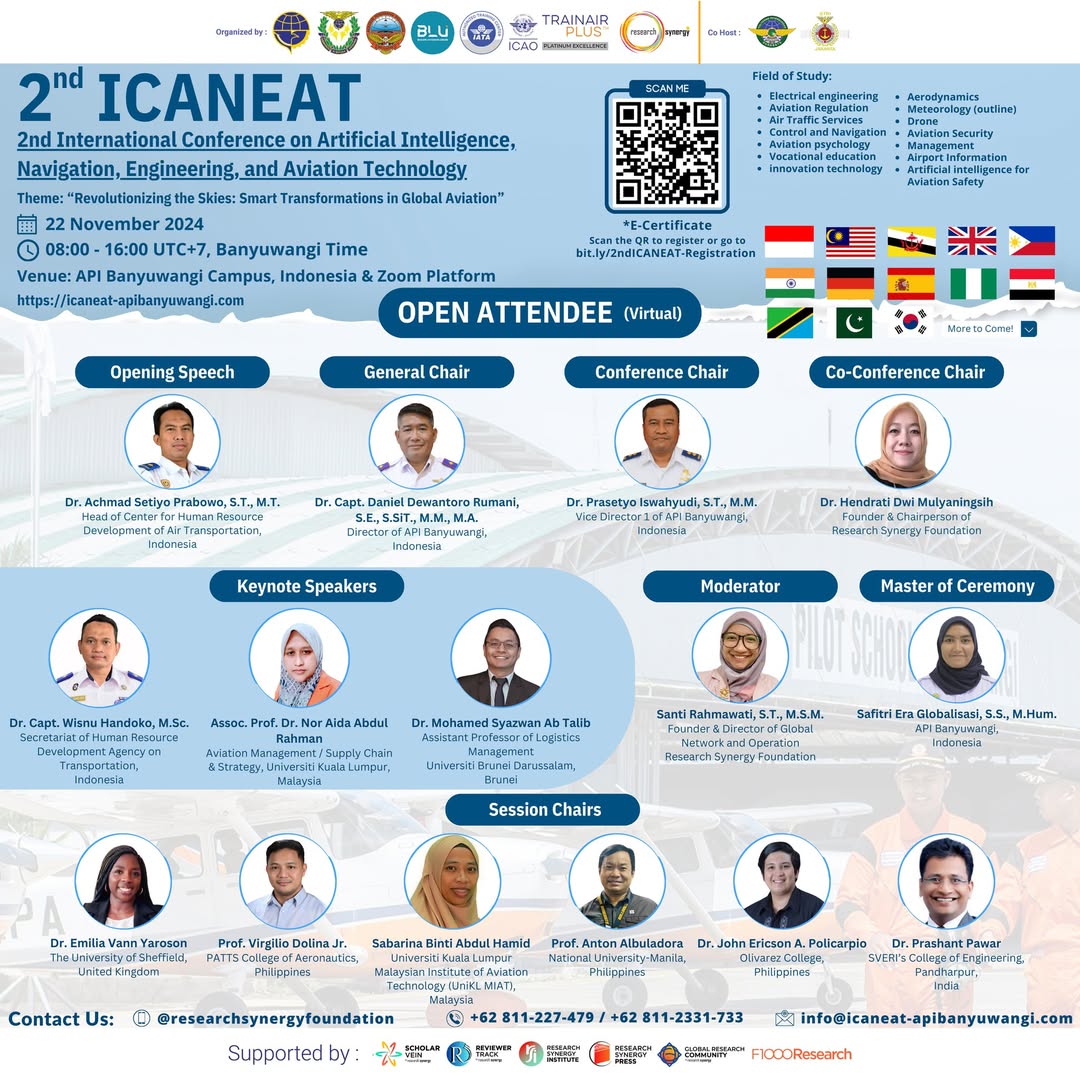The Role of Professional Training in Improving Instructor Performance at Police Education Institutions in Indonesia
Keywords:
Training, Educator Performance, State Police School, Conceptual ArticlesAbstract
Improving the quality of education in police institutions, particularly at the National Police School (SPN), is inseparable from the strategic role of educators in shaping the character and competencies of students. Education and training (diklat) are important instruments in strengthening the professional capacity of educators so that they can carry out teaching duties effectively and in accordance with the demands of the police curriculum. This conceptual article aims to theoretically examine the influence of training on the performance of educators at SPN, by reviewing literature related to the concept of training, dimensions of educator performance, and the relevance of both in the context of semi-military organizations. The theoretical approach used includes Human Capital theory and organizational performance theory, which explain that investment in human resource development through training has a positive impact on improved work performance. Through a literature review and conceptual analysis, this article concludes that training designed based on real needs and implemented systematically can contribute significantly to improving pedagogical competence, work discipline, and learning effectiveness in the SPN environment. This conceptual contribution is expected to serve as a foundation for the formulation of training policies that are more targeted and oriented towards improving the quality of police education.
References
[1] Djanggih, H., & Ahmad, K. (2017). The effectiveness of Indonesian National Police function on Banggai regency police investigation (Investigation case study year 2008-2016). Jurnal Dinamika Hukum, 17(2), 152-157.
[2] Hutahaean, A., & Indarti, E. (2020). Implementation of investigation by the Indonesian national police in eradicating corruption crime. Journal of Money Laundering Control, 23(1), 136-154
[3] Undang-Undang Republik Indonesia Nomor 14 Tahun 2005 tentang Guru dan Dosen.
[4] UNESCO. (2018). Teaching and Learning: Achieving Quality for All – EFA Global Monitoring Report. Paris: UNESCO Publishing.
[5] Rivai, V., & Sagala, E. J. (2017). Manajemen Sumber Daya Manusia untuk Perusahaan. Rajawali Pers.
[6] Sari, P., & Nugroho, S. (2017). Evaluasi diklat guru dalam peningkatan kualitas pembelajaran. Jurnal Evaluasi Pendidikan, 8(1), 25–34.
[7] Simamora, H. (2004). Manajemen Sumber Daya Manusia. STIE YKPN.
[8] Sudjana, D. (2010). Manajemen Program Pelatihan. Bumi Aksara.
[9] Sugiyono. (2021). Metode Penelitian Pendidikan (Pendekatan Kuantitatif, Kualitatif, dan R&D). Alfabeta.
[10] Sutrisno, E. (2016). Manajemen Sumber Daya Manusia. Kencana.
[11] Suwarto, R. (2018). Pelatihan dan pengembangan profesionalisme guru. Jurnal Pendidikan Profesional, 6(2), 78–89.
[12] Syafaruddin. (2015). Manajemen Pelatihan Pendidikan. Bumi Aksara.
[13] Tjiptono, F. (2019). Strategi Manajemen. Andi.
[14] Umar, H. (2016). Manajemen Strategis dalam Organisasi Pendidikan. PT RajaGrafindo Persada.
[15] Wibowo, A. (2018). Pengaruh pelatihan terhadap kinerja pengajar di lembaga pendidikan teknis. Jurnal Manajemen dan Organisasi, 10(1), 87–96.
[16] Widodo, J. (2016). Hubungan antara pelatihan dan kinerja guru SD. Jurnal Ilmu Pendidikan Dasar, 3(2), 32–41.
[17] Wirawan. (2015). Evaluasi Kinerja SDM: Teori, Aplikasi, dan Penelitian. Salemba Empat.
[18] Yulianto, S., & Rachman, T. (2021). Pengaruh pelatihan berbasis kompetensi terhadap dosen akademi militer. Jurnal Pendidikan Taktis, 4(1), 14–26.
[19] Zainal, A. (2020). The impact of in-service training on teachers’ performance: A case study. International Journal of Educational Research Review, 5(3), 235–243.
[20] Zulkarnain, F. (2021). Kompetensi dan pelatihan guru dalam pembentukan karakter siswa. Jurnal Pendidikan Karakter, 11(2), 124–135.
[21] OECD. (2019). Developing Teachers as Leaders: Lessons from Around the World. OECD Publishing.
[22] Astuti, R., & Handayani, S. (2020). The influence of competency-based training on teacher performance in high schools. Jurnal Pendidikan dan Pengajaran, 53(2), 101–112.
[23] Becker, G. S. (1993). Human capital: A theoretical and empirical analysis with special reference to education (3rd ed.). University of Chicago Press.
[24] Firmansyah, D. (2019). Efektivitas diklat dalam meningkatkan kinerja guru di daerah terpencil. Jurnal Manajemen Pendidikan, 7(1), 44–56.
[25] Hasibuan, M. S. P. (2016). Manajemen Sumber Daya Manusia. Bumi Aksara.
[26] Harahap, R., & Simanjuntak, T. (2023). Pengaruh diklat karakter terhadap kompetensi guru SMA. Jurnal Pendidikan Karakter, 13(1), 22–34.
[27] Kementerian Pendidikan dan Kebudayaan. (2020). Modul Pelatihan Berbasis Kompetensi untuk Pendidik. Jakarta: Direktorat GTK.
[28] Lestari, E. (2020). Strategi pengembangan SDM melalui pelatihan di pendidikan vokasi. Jurnal Ilmiah Pendidikan dan Pembelajaran, 14(2), 77–88.
[29] Mangkunegara, A. A. P. (2019). Manajemen Sumber Daya Manusia Perusahaan. Remaja Rosdakarya.
[30] Nasution, H., et al. (2021). Evaluasi program diklat internal di SPN XXX. Jurnal Pendidikan Kepolisian, 5(1), 55–67.
[31] Nawawi, H. (2015). Manajemen Sumber Daya Manusia untuk Bisnis Kompetitif. Gadjah Mada University Press.
[32] Putra, Y. (2022). Pengaruh diklat terhadap motivasi dan kinerja pegawai lembaga pemerintah. Jurnal Administrasi dan Organisasi, 9(3), 141–152.
Downloads
Published
Issue
Section
License
Copyright (c) 2025 Abdul Habib Sitompul, Rahima Br Purba (Author)

This work is licensed under a Creative Commons Attribution-ShareAlike 4.0 International License.









